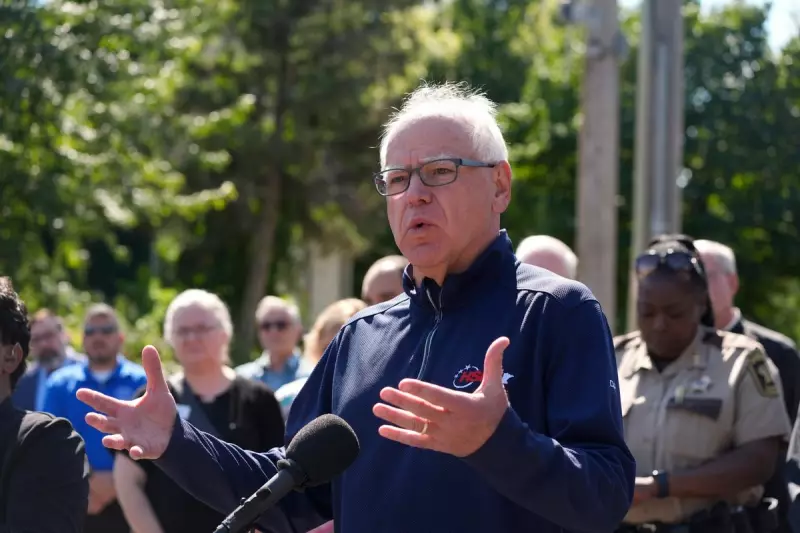
In a decisive move that has ignited a fierce national debate, Minnesota Governor Tim Walz has vetoed a contentious bill that sought to prohibit religious symbols, including crosses and hijabs, within the state's public schools. The proposed legislation, which had successfully passed through the Republican-controlled legislature, was struck down on grounds of violating core American principles.
The governor, a Democrat and former teacher, condemned the bill as a "clear violation" of the US Constitution's First Amendment, which guarantees freedoms concerning religion, expression, and assembly. He argued that the government has no authority to dictate personal faith or the expression of it.
A Contentious Legislative Battle
The bill's journey to the governor's desk was marked by strong partisan divides. Sponsored by Republican lawmakers, the legislation aimed to enforce a stricter separation of church and state within educational institutions. Proponents argued it was necessary to maintain secular and neutral learning environments for all students.
However, the proposal faced immediate and powerful opposition from a broad coalition of religious groups, civil liberties organisations, and Democratic legislators. Critics lambasted it as an discriminatory measure that would disproportionately target religious minorities, including Muslim students who wear hijabs and Sikh students who wear turbans.
National Implications and Reactions
Governor Walz's veto has resonated far beyond Minnesota's borders, tapping into a heated national conversation about religious expression, individual liberty, and the role of government. His action has been lauded by civil rights advocates who see it as a crucial stand for religious tolerance.
Conversely, the move has drawn criticism from supporters of the bill, who accuse the governor of prioritising religious expression over what they perceive as constitutional secularism. This clash highlights the ongoing and complex tension between individual religious rights and the principle of the separation of church and state in American public life.
The veto is final, and the Republican majority in the legislature does not hold the numbers required to override it, ensuring the bill will not become law.





